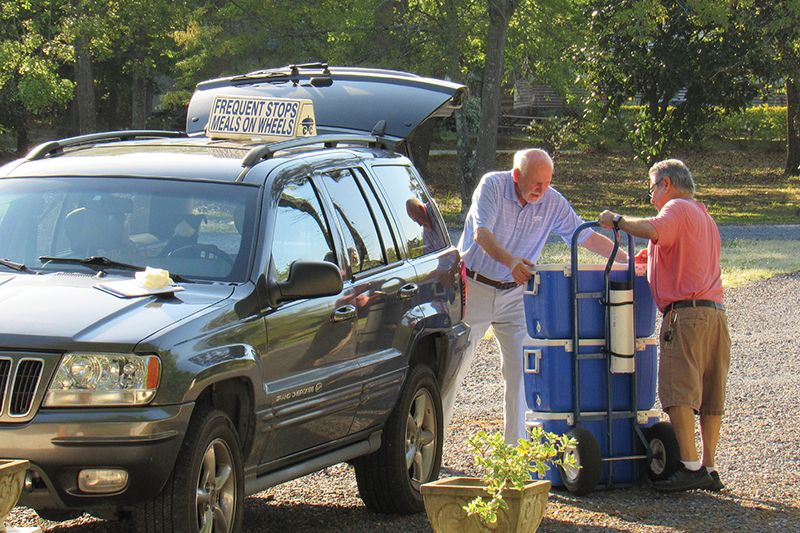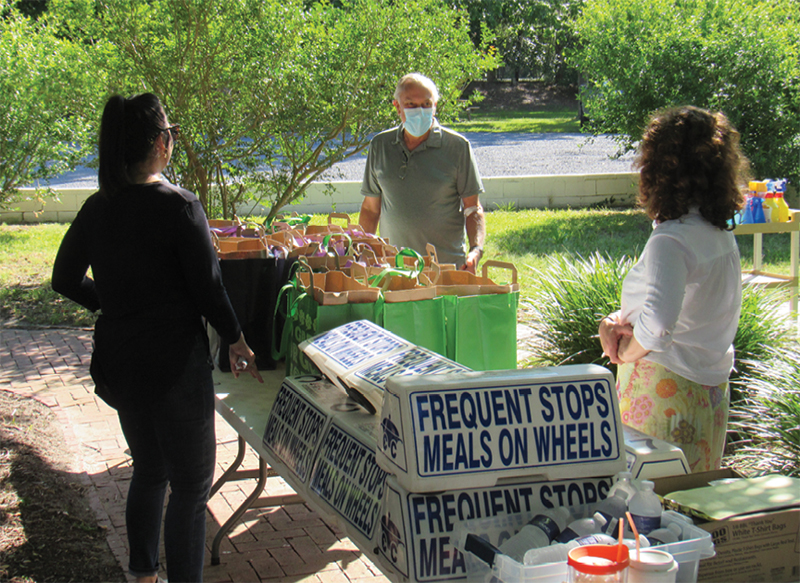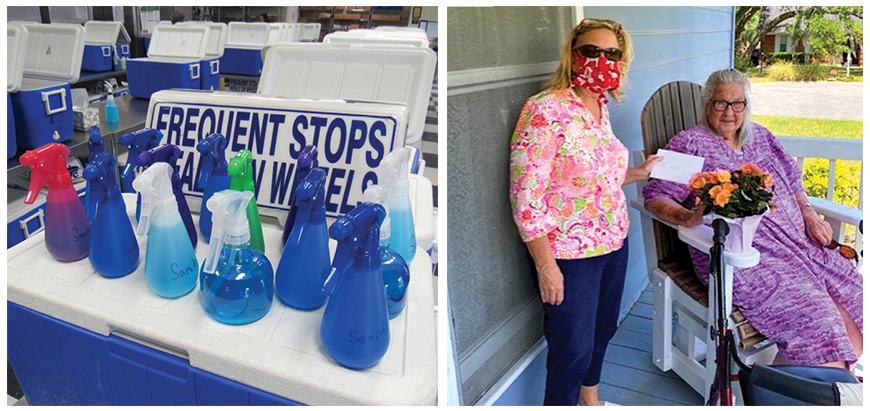How the nonprofit continues to feed those at home during the pandemic

In April, volunteers began dropping off meals in coolers to reduce contact with recipients.
East Cooper Meals on Wheels usually delivers 450 fresh meals daily, but on March 23, staff and volunteers made and distributed 3,000 frozen meals to ensure 300 homebound elderly or sick people in Mount Pleasant had food to eat during the first weeks of the pandemic.
By April, the nonprofit had resumed weekly deliveries of microwavable meals, but with no contact with the diners, who receive one or two meals per day. “We deliver in coolers on the front porch rather than spending time with them face-to-face,” explains George Roberts, the nonprofit’s CEO. “Most of the people we serve are in the high-risk group for COVID, and we don’t want to introduce anything that would cause problems.”
With six staff members and more than 450 volunteers, the East Cooper organization serves more than 700 people a year about 165,000 meals. Its mission is to address hunger and isolation in the homebound population, an undertaking made more urgent, but also more challenging, because of the pandemic. Though the group’s annual fundraiser has been postponed twice due to the coronavirus, Roberts says the community has stepped up to support Meals on Wheels. The nonprofit “broke even” for 2020 and is beginning to raise the $21,000 a week needed to feed the homebound in 2021, he says.

Volunteers pick up groceries to deliver to homebound people.
In addition to delivery protocols, adjustments had to be made to meal prep. Instead of 12 to 15 volunteers packing meals, the staff handles those duties to maintain social distancing. “We took everything outside. When the drivers show up, it’s like the drive-through at Chick-fil-A,” Roberts says. “We take everything to the cars, give them route sheets, and send sanitizer with them to clean the coolers when they’re done. We want to minimize the people involved to minimize the chances of transmitting the virus.”
The new process also limits the social interaction for which so many of the recipients are hungry. For many, Roberts says, the Meals on Wheels volunteer is the only person they see all week. “Often, volunteers are the first people to notice direly needed home repairs, such as a water leak or electrical short. We’ll partner with other groups to try and get them help,” he says.

In addition to meals, the nonprofit provides companionship to homebound elderly and ill, but that interaction has been limited due to the pandemic.
Before COVID, volunteers customized their routes so they could spend time with the loneliest of participants. Now, volunteers reach out by phone. “Seventy-two percent of the people we serve live alone, and if they did happen to fall in the shower, they could be lying there for hours before someone finds them,” Roberts says. “We have a phone number for each recipient and, if we get no response, we have emergency contacts like a relative or neighbor.”
Meals on Wheels offers much more than a meal to the homebound, Roberts says, and will continue to do so beyond the pandemic. “It’s a population that is often forgotten by definition. We don’t run into them at the grocery or church. They really don’t have any options. If we didn’t deliver meals to them, I don’t know what they would be doing.”
Surveys show that 90 percent of seniors want to remain in their homes, but that often necessitates groups such as Meals on Wheels. “A lot of people think we’re just delivering food and running off, but it’s taking a look at the whole person and what they need,” Roberts says. “It takes a lot more than just a meal to stay in your home.”